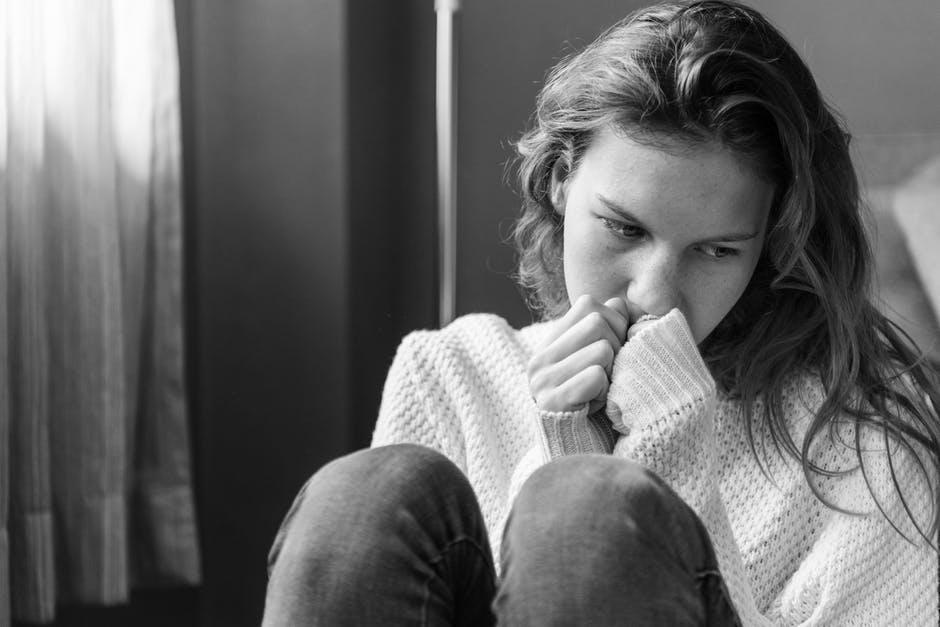
Over 3 million adult Canadians have some sort of anxiety disorder. This is about 11.6% of the overall population.
While it's normal for human beings to go through periods of anxiety, there may be some cases where your anxiety is a disorder. It can become so bad that it interferes with your quality of life.
Thankfully, these disorders can be managed with both psychiatric help and medications. In this article, I'll go into detail about the 5 main types of anxiety disorders and how you can recognize them.
1. Generalized Anxiety Disorder (GAD)
People who have Generalized Anxiety Disorder (GAD) will have an excessive amount of anxiety about almost anything in their lives. They have irrational and uncontrollable thoughts surrounding anything they can think of, whether it's specific events or general activities.
Everyone goes through small bouts of excessive worry, so how can you tell if it's just something human you're experiencing, or something more?
With GAD, these types of thoughts have to be persisting. To get a diagnosis, your symptoms need to be consistent for over 6 months.
Other Symptoms
Because the anxiety is so overwhelming, you may experience additional symptoms.
These can include fatigue, insomnia, restlessness, irritability, trembling, sweating, and heart palpitations.
Treatment
Making lifestyle changes can be a good way to keep stress levels down.
It's recommended that you attend therapy so you can learn some good coping skills for your anxiety. In addition, you may be prescribed medications such as selective serotonin reuptake inhibitors (SSRIs), serotonin-norepinephrine reuptake inhibitors (SNRIs), benzodiazepines, Pregabalin, or Gabapentin.
2. Panic Disorder
When you have panic disorder, you'll frequently experience panic attacks, which may be debilitating. While they may feel like you're having a heart attack, they're relatively harmless. The most difficult thing is getting through them.
Symptoms
While you're having a panic attack, you'll experience sweating, shaking, heart palpitations, shortness of breath, and even numbness. You may also get a feeling of impending doom. Panic attacks can last from a few seconds to a few hours, but most last for around 30 minutes.
While most panic attacks can happen unexpectedly, they can sometimes be triggered by caffeine, smoking, or stress.
Treatment
Since panic attacks are the main symptom of this disorder, treatment involves coping with them.
Psychotherapy is most effective since it helps people with a panic disorder go through and understand the components of a panic attack. As a result, future panic attacks may be easier to manage.
Medications are also prescribed for treatment. Some common ones include SSRIs and MAOIs. If these aren't effective, then benzodiazepines may be prescribed as well.
3. Obsessive-Compulsive Disorder (OCD)
Obsessive-Compulsive Disorder (OCD) is an anxiety disorder that many people have heard about.
It's a complicated disorder that involves intrusive, unwanted thoughts and repetitive behaviors the person must carry out. If those actions aren't done "correctly," OCD sufferers may keep doing the actions until they feel relief from finally performing them right.
Symptoms
The obsessions and compulsions can vary widely between person to person. Some of the more common compulsions include excessive hand washing, counting of certain objects, and repeatedly checking something, such as the door being locked.
The main thing is the person constantly has intrusive thoughts and feels like they must carry out a certain "ritual" (such as hand washing) to get rid of the anxious feeling.
Treatment
The main forms of treatment for OCD are cognitive behavioral therapy (CBT) and psychotropic medications. These can include SSRIs and tricyclic antidepressants.
4. Post-Traumatic Stress Disorder (PTSD)
Post-Traumatic Stress Disorder (PTSD) may be another anxiety disorder you've heard about. This disorder may develop after a traumatic life event, such as sexual assault or warfare. This is why many rape victims and veterans are diagnosed with this disorder.
Symptoms
You may start having symptoms within 3 months of the traumatic event, but in some cases, they may not start manifesting for years. The primary thing you may experience is intrusive thoughts surrounding the event, making you relive it. On the other hand, it's not uncommon to block out memories or even have amnesia surrounding the event.
It's completely normal to have these symptoms after any traumatic events, but if they persist after one month and are quite serious, then you may have PTSD.
Treatment
The approach to treating PTSD is mainly counseling. Both CBT and interpersonal psychotherapy are used, as is eye movement desensitization and reprocessing (EMDR).
Antidepressants and glucocorticoids may be prescribed, but generally, they aren't used as the primary treatment method.
5. Social Anxiety Disorder (SAD)
Social Anxiety Disorder (SAD) is also known as social phobia. If you have this disorder, you may worry excessively about certain social situations. But your biggest fear is probably being viewed negatively by others.
Symptoms
When you're in social situations, you might start sweating, blushing, or have heart palpitations. Other symptoms include nausea and trembling, as well as stammering, faster-than-normal speech, and trouble breathing. If it gets bad enough, you might have a panic attack as well.
Treatment
CBT is the type of treatment you'd get for SAD. If someone with SAD doesn't want to go through therapy, then they may be prescribed SSRIs. SNRIs and anticonvulsant drugs may be prescribed if SSRIs don't work.
Get Your Anxiety Disorders Treated
After reading this list of anxiety disorders, you may be concerned that you have one, or even two. It can be alarming to read through symptoms and have them match up to what you're experiencing.
But before you panic, know that the first step is to make an appointment with a doctor. Only they can properly diagnose you and recommend the best treatment available. If you have any anxiety disorders, you can still manage them and lead a normal and healthy life with proper care.
If you have questions or concerns regarding anxiety disorders or any other aspect of your mental health, please feel free to get in touch with me now.